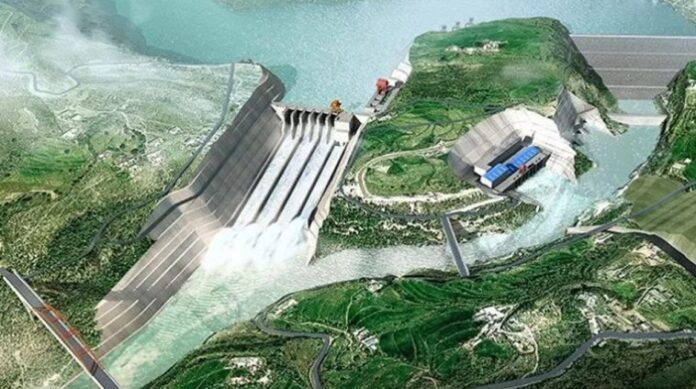ISLAMABAD – The Central Development Working Party (CDWP), chaired by Minister for Planning, Development & Special Initiatives and Deputy Chairman of the Planning Commission, Ahsan Iqbal, approved 10 development projects during its recent meeting. Of these, four projects worth Rs. 14.312 billion were granted final approval, while six major projects amounting to Rs. 1.82 trillion were recommended to the Executive Committee of the National Economic Council (ECNEC) for consideration and final approval.
The meeting was attended by Secretary Planning Awais Manzur Sumra, members of the Planning Commission, federal secretaries, provincial planning heads, and representatives from federal ministries and provincial governments. The agenda included projects across various sectors, including education, higher education, information technology, housing, power, water resources, and transport.
As per details among the projects discussed, a major education initiative titled “Getting Results: Access and Delivery of Quality Education Services in Balochistan” was referred to ECNEC. The Rs. 28 billion project, backed by $100 million in World Bank funding, aims to improve access to education, enhance teaching quality, build climate resilience, and introduce emergency preparedness in Balochistan’s education system.
In the higher education sector, the CDWP approved the establishment of a sub-campus of Quaid-i-Azam University in Sharaqpur, Sheikhupura, at a cost of Rs. 3.88 billion, subject to the provision of land by the Punjab government and formal approval by the university syndicate.
Three IT-related projects were also approved. These include the Prime Minister’s Initiative for support to IT startups, specialized trainings, and venture capital worth Rs. 5 billion; the strengthening of the Ministry of Planning in IT with an allocation of Rs. 579.815 million; and the National Semiconductor HR Development Program (Phase I) valued at Rs. 4.84 billion.
The CDWP also referred a revised housing project to ECNEC, involving the construction of a customs complex at Sost and digital enforcement stations by the FBR along the Indus, Hub, and Balochistan rivers, worth Rs. 16.1 billion.
One of the most significant items on the agenda was the revised Dasu Hydropower Project (Stage-I), now valued at Rs. 1.74 trillion. The project was referred to ECNEC with instructions for WAPDA to rationalize costs and respond to outstanding queries. Minister Ahsan Iqbal expressed deep concern over the drastic cost escalation from the original Rs. 479 billion, attributing it to delays and mismanagement. He emphasized the project’s strategic importance for the country’s water and food security and called for its swift completion.
The Minister ordered third-party validation of the revised PC-1, questioned WAPDA’s failure to appoint a full-time project director despite ECNEC’s directions, and criticized the absence of a qualified chief financial officer overseeing the project. He strongly objected to WAPDA’s decision to award a 66-kilometer section of the Karakoram Highway under the project in foreign currency, calling it “criminal negligence.” Furthermore, it was revealed that design changes and expenditures were made without necessary approvals, prompting the Minister to demand explanations from the concerned officials.
In the transport sector, the Rs. 12.26 billion Sindh Flood Emergency Rehabilitation Project (Phase II) was also referred to the ECNEC. Funded by $40 million from the World Bank and $4 million from the Sindh government, the project aims to restore over 145 kilometers of roads, build rescue stations, and improve disaster preparedness in four flood-affected districts.
Two significant water projects for Balochistan were also sent to ECNEC for approval. The Rs. 9.83 billion Quetta Water Supply System improvement project seeks to address the city’s chronic water shortages, while the Rs. 17.17 billion flood management project for the Kachhi Plains aims to expand irrigation and enhance flood resilience.
Minister Iqbal reiterated the government’s commitment to accelerating the implementation of development projects that contribute to inclusive growth and national progress. He emphasized the importance of transparency and efficiency, stating, “Pakistan’s development budget shrank considerably between 2018 and 2022. Every rupee is a sacred trust and must be spent with utmost responsibility to achieve the desired development goals.”




